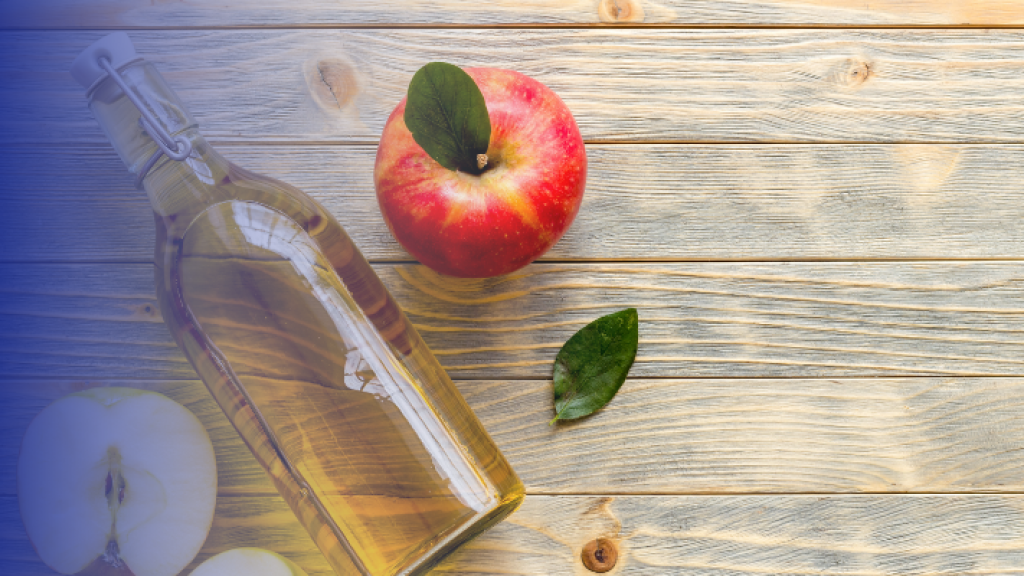How to Incorporate Foods That Ease Heartburn Into Your Lifestyle
Heartburn is more than just an uncomfortable name; it’s that burning sensation that occurs in your chest, not your heart. This discomfort happens when stomach acid flows into the oesophagus, the tube that carries food from your mouth to your stomach.1
While various factors contribute to heartburn, your diet plays a big role in help preventing acid reflux which is symptom of heartburn.2 That’s why it’s important to understand which foods act as triggers and which ones offer relief.
Incorporating foods that help to prevent heartburn into your diet isn't just about avoiding discomfort – it's about proactively taking steps to manage your digestive health.

Common Triggers and the Role of Diet
When it comes to that can help prevent heartburn, it's helpful to understand the common food-related heartburn triggers. These often include high-fat foods like fried foods, fatty cuts of meat, and creamy sauces. These foods linger in the stomach longer, increasing the chance of acid reflux.3 Other trigger foods include acidic beverages like citrus juices, tomato juice and carbonated drinks which can trigger heartburn.4 You should also consider avoiding spicy ingredients like chilli powder, cayenne pepper and hot sauce.
The good news is that you can significantly reduce your symptoms by making simple dietary changes. You can start by identifying and minimising your personal trigger foods. Keeping a food diary can be incredibly helpful in pinpointing your specific triggers. Note down what you eat and when you experience heartburn to identify patterns. You can also try experimenting with heartburn-friendly alternatives. For example, swap fried chicken for grilled chicken or creamy pasta for a pasta salat.
Even if you're eating the "right" foods, overeating can put excess pressure on your stomach, increasing the risk of heartburn.5 Here's where mindful eating comes in, with smaller, more frequent meals. Instead of three large meals, try eating smaller portions more frequently throughout the day. By combining a heartburn-friendly diet with mindful eating habits, you can take big strides towards managing your symptoms and enjoying your meals comfortably.
Heartburn-Friendly Foods to Try
Eating to manage heartburn isn't about missing out on the things you love. It's about making smart choices that support your digestive health. Here are ten of the best foods for heartburn to incorporate into your diet:
- Oatmeal: This breakfast staple is source of fibre, which supports healthy digestion.6
- Melons: Melons like honeydew and watermelon are mildly acidic fruit rich with magnesium which can aid in neutralising the acid.26
- Leafy Greens: Spinach, kale, and lettuce are generally well-tolerated because of their high water content.9
- Fennel: This liquorice-flavoured vegetable can help relax the digestive tract.10
- Lean Protein: Chicken, fish, turkey and tofu provide essential protein without the saturated fats that can sometimes trigger heartburn.11
- Healthy Fats: Avocado, olive oil and nuts offer healthy fats which is a healthier option.12
- Yogurt: Opt for plain, low-fat yoghurt with cultures to promote a healthy gut microbiome.13
Meal Planning and Preparation of Heartburn-Friendly Foods
Now that you have a solid grasp on some of the best foods for reducing the risk of heartburn, let's talk about putting it all together into delicious, heartburn-friendly dishes that are easy on the digestive system.
There are various cooking methods that help ease heartburn. Techniques like baking, grilling, and steaming help reduce the need for added fats, which can trigger symptoms.14 Poaching and stewing are gentle cooking methods that are ideal for lean proteins and vegetables, preserving their nutrients and flavours. Try to avoid frying, because fried foods are notorious heartburn triggers due to their high-fat content.14
For flavour without the flare-ups, incorporate heartburn-friendly herbs and spices. Fresh herbs such as basil, parsley, dill, and oregano all add vibrant taste while reducing the risk of irritating your system.14
Here are some additional meal planning tips to help prevent heartburn:
- Prepare meals in advance: Having heartburn-friendly meals ready to go can prevent impulsive, symptom-triggering choices when you're short on time.
- Read food labels carefully: Pay attention to hidden ingredients that could be triggering your heartburn like chili powder.
- Listen to your body: Everyone’s digestive system is unique. If a particular food seems to bother you, it's best to avoid it.

Lifestyle Tips that Help Prevent Heartburn
While diet plays a crucial role in managing heartburn, lifestyle modifications are equally important in helping to prevent those fiery episodes. Here are some key strategies to incorporate into your daily routine:
Eating Habits for a Happy Stomach
- Smaller, more frequent meals: Instead of three large meals, aim for five or six smaller meals spaced throughout the day. This helps to prevent your stomach from becoming overly full and reduces pressure on the lower oesophageal sphincter.15
- Eat slowly and chew thoroughly: Digestion begins in the mouth, so chew well to ease the workload on your stomach and allow for better nutrient absorption.16
- Avoid late-night snacking: Give your body at least 2-3 hours to digest before lying down. Eating close to bedtime increases the risk of acid reflux.17
- Stay upright after eating: Avoid lying down or bending over for at least two hours after meals to help prevent acid from backing up.18
There are many other lifestyle adjustments you can try – for instance, maintaining a healthy weight. Excess weight, especially around the abdomen, puts pressure on the stomach, increasing the likelihood of heartburn.19 Another tip is to try to manage your stress. Stress can trigger the release of hormones that increase stomach acid production.21 Find healthy ways to manage stress, such as exercise, yoga, or meditation.
References
[1] https://my.clevelandclinic.org/health/diseases/9617-heartburn-overview
[2] https://www.hopkinsmedicine.org/health/wellness-and-prevention/gerd-die…
[3] https://www.healthline.com/health/gerd/foods-to-avoid#spicy-foods
[4] https://www.webmd.com/heartburn-gerd/triggers
[5] https://www.mdanderson.org/publications/focused-on-health/What-happens-…
[6] https://www.healthline.com/nutrition/9-benefits-oats-oatmeal
[8] https://www.healthline.com/nutrition/honeydew
[9] https://integrishealth.org/resources/on-your-health/2022/april/foods-to…
[10] https://www.webmd.com/heartburn-gerd/ss/slideshow-foods-fight-gerd
[12] https://www.healthline.com/health/gerd-acid-reflux/diet-restrictions#in…
[13] https://www.diabetesaustralia.com.au/blog/how-to-choose-a-healthy-yoghu…
[14] https://www.everydayhealth.com/heartburn-photos/cooking-tips-for-heartb…
[15] https://www.verywellhealth.com/stop-doing-with-gerd-1742213#:~:text=The….
[16] https://www.intestinal.com.au/chewing-food
[17] https://www.sleepfoundation.org/nutrition/is-it-bad-to-eat-before-bed
[18] https://www.healthdirect.gov.au/gord-reflux
[19] https://www.gastrodoxs.com/blog/how-your-weight-affects-your-acid-reflux
[20] https://www.hopkinsmedicine.org/health/conditions-and-diseases/smoking-…
[21] https://dpuhospital.com/blog/can-stress-cause-acid-reflux/
[22] https://www.webmd.com/digestive-disorders/features/foods-that-fight-hea…
[23] https://www.healthline.com/health/gerd/beverages
[24] https://health.clevelandclinic.org/is-eating-before-bed-bad-for-you
Foods That Help prevent Heartburn FAQs
What foods cause heartburn at night?
Eating close to bedtime increases the risk of nighttime heartburn.24 Try consuming the right foods to help avoid heartburn, and avoid problematic foods that are spicy, acidic or high in fat content.
What food can help with stomach acid?
While no food can magically "soak up" stomach acid, some foods with higher pH are alkaline and can help offset strong stomach acid. Examples of these foods are cauliflower, bananas and almonds.2
What can I drink to relieve heartburn?
Staying hydrated is key to managing heartburn, and certain drinks can be particularly helpful. Water is always a good choice, as it helps dilute stomach acid and keeps you hydrated. Herbal teas, such as chamomile or ginger tea, can also soothe the digestive tract. Additionally, almond milk may help neutralise stomach acid, may help to provide relief. However, it’s best to avoid caffeinated beverages, carbonated drinks, and citrus juices, as these can exacerbate heartburn symptoms.






